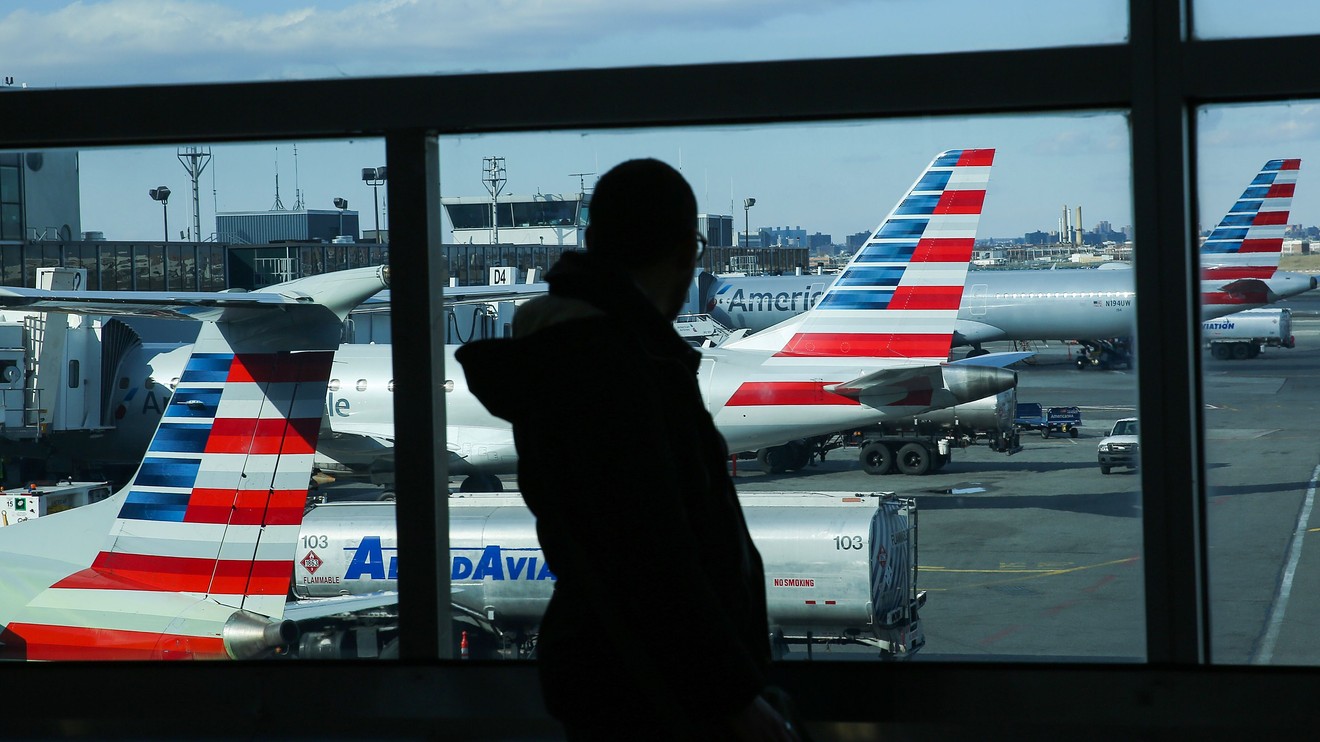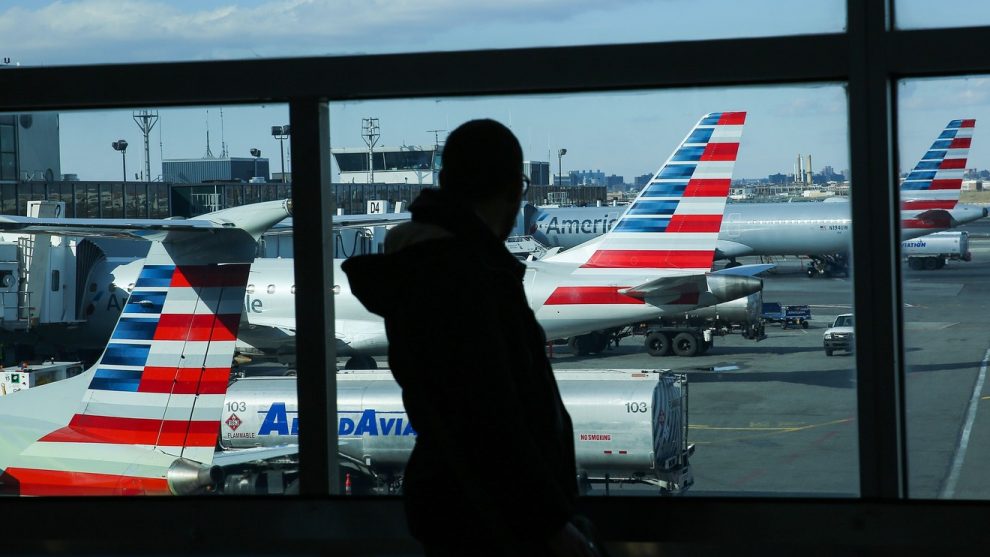
The financial horizon looks uncertain for the airline industry.
Air travel has largely ground to a halt as people have grown wary about potentially exposing themselves to coronavirus. Many airlines have resorted to flying mostly empty flights — although in some cases, passengers have complained about crowded planes, as in the case of a recent United Airlines UAL, -5.04% flight.
Carriers’ stocks have tanked in response. Warren Buffett recently revealed that Berkshire BRK.A, -0.61% had sold off all of its holdings in the airline sector, including stock in Delta DAL, -4.45%, American Airlines AAL, -4.45% and Southwest LUV, -3.25%.
“ ‘If one of the nation’s biggest airlines went belly-up, it would create an absolute tidal wave of refund requests, and it is unrealistic to think that banks would grant them all.’ ”
Boeing BA, -2.86% Chief Executive David Calhoun suggested that a major airline will “most likely” go under as a result of the coronavirus pandemic during a recent appearance on NBC’s “Today” show. He added that it could take three to five years for the industry to recover to the passenger levels seen before the pandemic.
A recent study estimated that airlines have distributed $10 billion in vouchers since coronavirus reached U.S. shores.
Depending on how the bankruptcy is handled, ticket-holders may or may not be in the clear. Often companies use bankruptcy as a legal tool to restructure its debts — in other words, an airline that goes bankrupt won’t necessarily be liquidated.
“Alitalia, for example, has been in some stage of bankruptcy proceedings since 2017 yet has continued to fly,” said Ted Rossman, industry analyst at CreditCards.com on Tuesday. Colombia’s Avianca airline, one of Latin America’s largest airlines, filed for bankruptcy protection on Monday. But he added, “Avianca hopes to get back in the air once the coronavirus pandemic subsides.”
Here’s what consumers need to know:
No guarantee of a refund
There’s no guarantee that a liquidated airline will directly reimburse would-be passengers for the cost of their airfare.
Investors who own corporate debt and stock would be paid back first, said Sara Rathner, travel and credit-card expert at NerdWallet. In other words. That, she added, “means you’re out of luck.”
Customers, meanwhile, are considered “unsecured creditors,” said Paul Hudson, president of consumer-advocacy group FlyersRights.org. The FAA requires airlines to have insurance for this, he said, but a payout could take a while if it comes at all.
Vouchers don’t have cash value
In lieu of refunds, the vast majority of airlines have provided travelers who pro-actively cancel trips because of coronavirus with vouchers or credits. “They would lose their money,” Chris Elliot, a consumer advocate, said.
Travel vouchers don’t actually have cash value. As a result, if a traveler is worried about their airline going under before all is said and done, they may be better off booking a trip using their voucher and then taking out a travel insurance policy on that trip that covers bankruptcies, Rathner said.
Your credit-card company could bail you out
You can request a refund or charge-back from your credit-card company if the airline goes belly up, experts said. (Debit cards may also provide some protection in these cases, but the claims process with credit cards is generally smoother, Rossman said.)
These requests can be made online or by phone. Making a request is no guarantee of receiving a refund, warned Matt Schulz, chief credit analyst at LendingTree TREE, -0.83%.
“It certainly doesn’t hurt to ask, but you shouldn’t consider it a slam dunk that you’ll get your way,” he said. “If one of the nation’s biggest airlines went belly-up, it would create an absolute tidal wave of refund requests, and it is unrealistic to think that banks would grant them all.”
Timing is another critical issue. Under the Fair Credit Billing Act, consumers only have 90 days after your purchase to file a claim, Elliott said. “Banks sometimes will give you more time, but technically you only have three months,” Elliott said.
Your travel-insurance policy may not protect you
If an airline liquidation hampers your travel plans, your travel-insurance policy may cover some of the costs. The key lies in the fine print.
“Look at the policy’s terms and conditions to ensure it covers financial default, and make sure the airline you’re flying is a covered supplier,” Rathner said.
Frequent-flyer miles may be useless
“If an airline goes out of business, it would be bad for its elite-status members and frequent flyer-mile holders, but they still might be able to get some value,” Rossman said.
If the airline ends up merging with a surviving carrier through the bankruptcy process, those miles would likely be converted into the new airline’s program.
“ If the airline ends up merging with a surviving carrier through the bankruptcy process, those miles would likely be converted into the new airline’s program. ”
Some airlines have split their loyalty program into separate companies, Rossman said, which could survive the bankruptcy. Many carriers also have “status match” programs to attract frequent-flyer members from other airlines. These programs will give you the equivalent status, and surviving airlines could use these programs to attract elite members from the defunct carrier.
But retaining frequent-flyer miles or status is far from guaranteed. “Rewards are not considered property, and can be eliminated by the airline program at their discretion,” said Brett Holzhauer, travel and credit-card expert at LendingTree.
If an airline looks like it will go out of business, people who have frequent-flyer miles should consider using them for flights or converting them into other purchases such as merchandise or gift cards, Holzhauer said.
You must pay off your airline credit card
Many people sign up for co-branded credit cards from airlines to get attractive perks, including travel credit rewards, but just because an airline goes out of business doesn’t mean you can avoid paying off your credit-card bill.
“Retail-card delinquencies spiked a few years ago along with store closures, with the theory that some customers felt they no longer owed a closed store like Toys ‘R’ Us,” Rossman said. “Unfortunately for those with credit-card debt, you do still owe the card company if the airline/store closes, and there can be major consequences for your credit score if you don’t pay.”











Add Comment